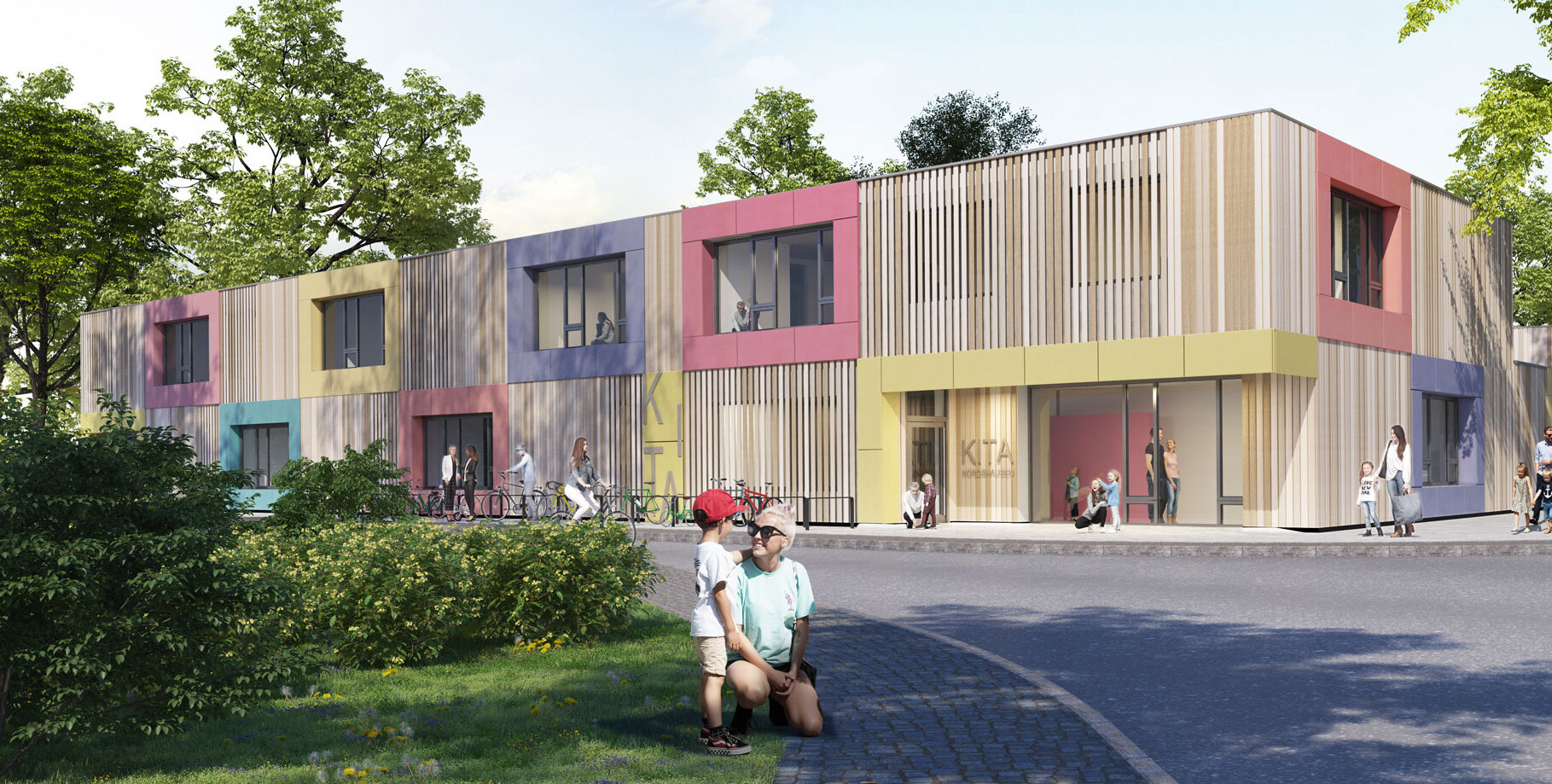Investing in the future
Sustainable construction projects
Inhalt
The “Cradle to Cradle” principle
Nordshausen, a district in the south-west of Kassel, is among the most rural areas of the city. The church and tithe barn of its central monastery, built almost 800 years ago, have been preserved to this day. Nearby, on “Am Klosterhof”, is a plot of land densely covered in trees. It is here, between the trees and beside the ancient walls, where the ultra-modern, very special childcare facility will be built.
As mayor Christian Geselle explains, “It will be what is known as a “physical education childcare facility”.
“It will be what is known as a “physical education childcare facility”. All the rooms and corridors are designed with play in mind, and close attention will be paid to nutrition, with groups cooking and eating together.”
Christian Geselle
But that isn’t all. Great emphasis is also placed on ecological sustainability, according to Geselle, whose avowed mission it is to improve the education infrastructure in his city of Kassel. Almost all of the trees on the plot are set to be preserved, with the new building itself satisfying the most stringent ecological requirements.
The wooden structure is to be built in keeping with the “Cradle to Cradle” principle, a philosophy based on the safe and potentially infinite circulation of materials. “The building will also boast optimum energy efficiency, featuring a heat pump, ventilation with heat recovery and a green roof,” adds Geselle.
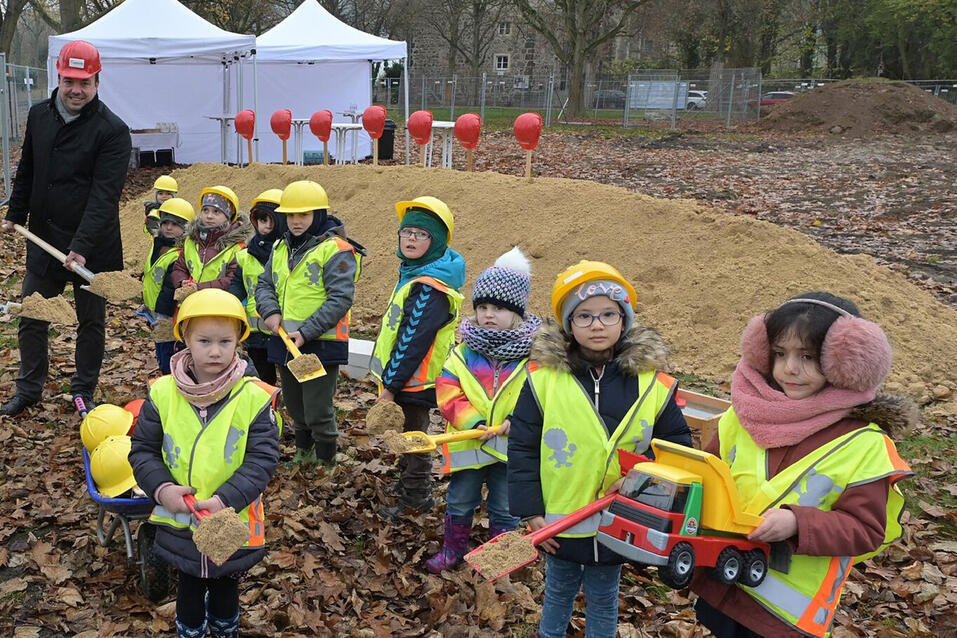
 Sustainability at a glance
Sustainability at a glanceSustainability at a glance
An overview of important aspects of sustainability at Helaba.
In urgent need of repair
Many would like to see new childcare facilities such as the one in Kassel-Nordshausen built more often. In general, Germany still has far too few institutions of this kind. Kassel aims to redress the balance as quickly as possible – and that goes for schools as well as kindergartens.
At the instigation of the mayor, the city has launched a construction and renovation offensive. And the great and the good of Kassel are relying on one particular model: “We’re talking about a public-public partnership,” explains Geselle. pro and SKI (Stadt Kassel Immobilien GmbH & Co KG) are the companies entrusted with project planning and construction.
The ambitious schemes can thus be financed and implemented within a reasonable time scale, in a similar way to the well-known public-private partnerships, according to Geselle. The only difference is that “the companies are under municipal control”.
“Helaba is owned by the Savings Banks and Giro Association Hesse-Thuringia, so is also in municipal hands, and is familiar with the challenges of the public sector thanks to its long-standing experience.”
Christian Geselle
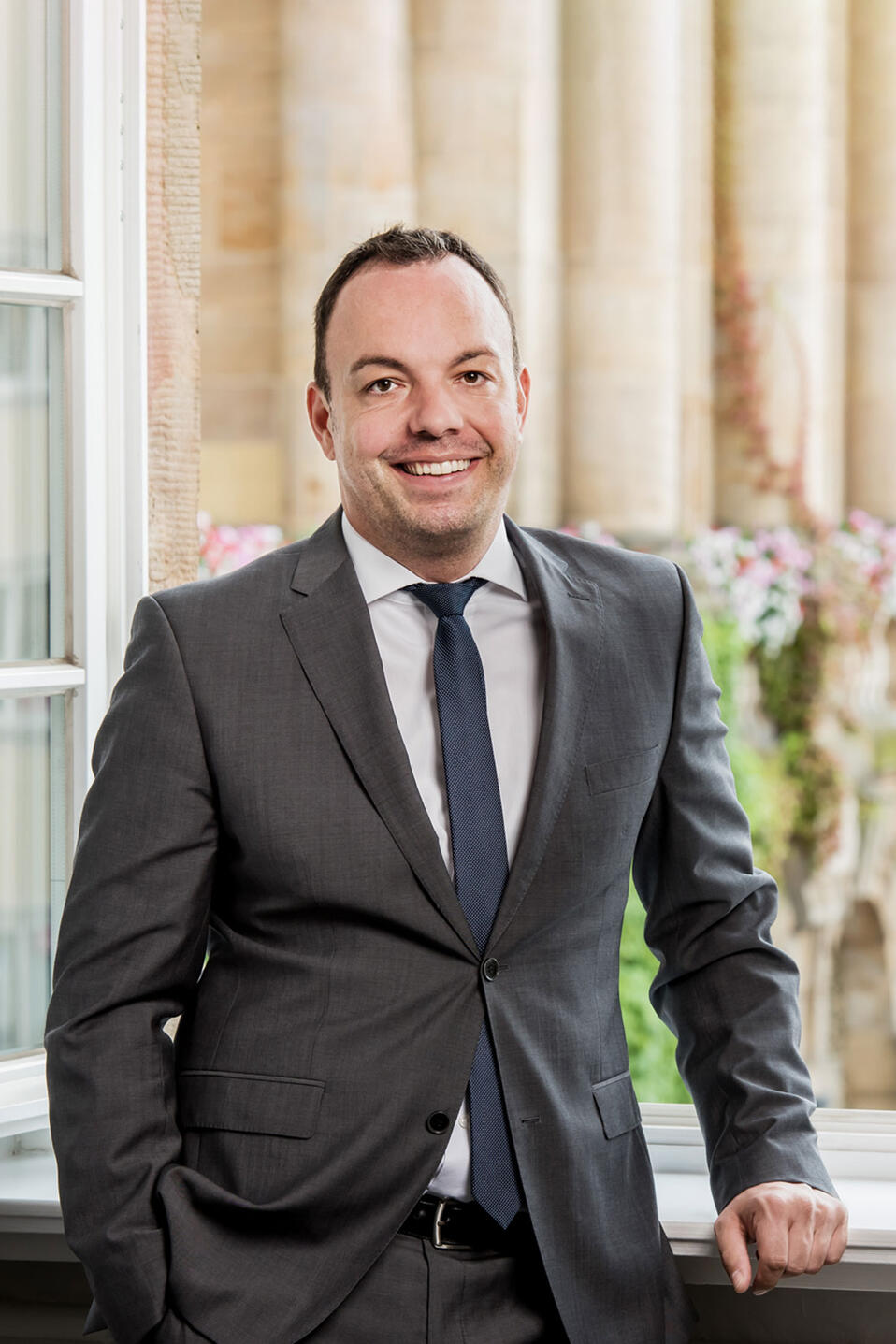
Expedient for the municipal authority, good for the Bank
SKI turned to Helaba when it came to financing the new development. Geselle regards the Bank as a reliable partner for the City of Kassel: “Helaba is owned by the Savings Banks and Giro Association Hesse-Thuringia, so is also in municipal hands, and is familiar with the challenges of the public sector thanks to its long-standing experience.”
Dr. Ulrich Pähler readily concurs with this assessment. The Head of Helaba’s Asset Finance division is responsible for the financing of the Nordshausen childcare facility. “We already have many similar financing arrangements in place when it comes to infrastructure projects – in Hanover, Nuremberg and Vienna, as well as in the UK and Ireland,” he says.
“We already have many similar financing arrangements in place when it comes to infrastructure projects – in Hanover, Nuremberg and Vienna, as well as in the UK and Ireland.”
Dr. Ulrich Pähler
“You could say that we have an extremely good knowledge of this sector.” Pähler goes on to explain why Helaba is such a welcome partner for the financing of infrastructure projects: “One of Helaba’s strengths is that it is always able to put very long-term – and hence extremely affordable – financing arrangements in place for public-sector projects.” Loan terms can cover 30 years or more. “Some other banks just can’t compete with that.”
11.000
children already benefit from social infrastructure developed with support from Helaba via financing projects in schools and childcare facilities.
The financing model
There is a simple reason for this: before granting a loan to a company, a bank will always try to assess the associated risk. How likely is the borrower to pay off the debt? The bigger the default risk, the higher the interest rates.
However, the default risk for public infrastructure such as childcare facilities or museums is negligible, since the tenant is the municipality – the City of Kassel, in the case of Nordshausen. And the municipality undertakes to pay the rent in any event, even if a building is unoccupied. If it is unable to pay, the federal state steps in, with the federal government taking its place should the need arise.
Helaba has granted the City of Kassel a 30-year loan against rent receivables at a low fixed interest rate. This is also worthwhile for the municipality, which only has small monthly interest and redemption payments.
In partnership for the long term
Long-term partnerships in the education sector are currently facing particular challenges. Innumerable kindergarten and school buildings are in an inadequate state of repair with poor energy ratings, and municipal authorities are having to cope with an investment backlog that in some cases has built up over decades. Staying power is of the essence here, and Helaba’s financing model is geared towards long-term benefit.
At the same time, the partnership with partially private property developers brings additional private expertise into the mix, resulting in a different approach from that traditionally found in the public sector. This applies both to new buildings such as the Nordshausen childcare facility and to the renovation of existing properties.
And that is precisely what mayor Christian Geselle is aiming for. The Nordshausen childcare facility will not be the last sustainable project to be tackled in a public-public partnership. Helaba also has a good chance of playing an important role in subsequent projects in Kassel’s education landscape.
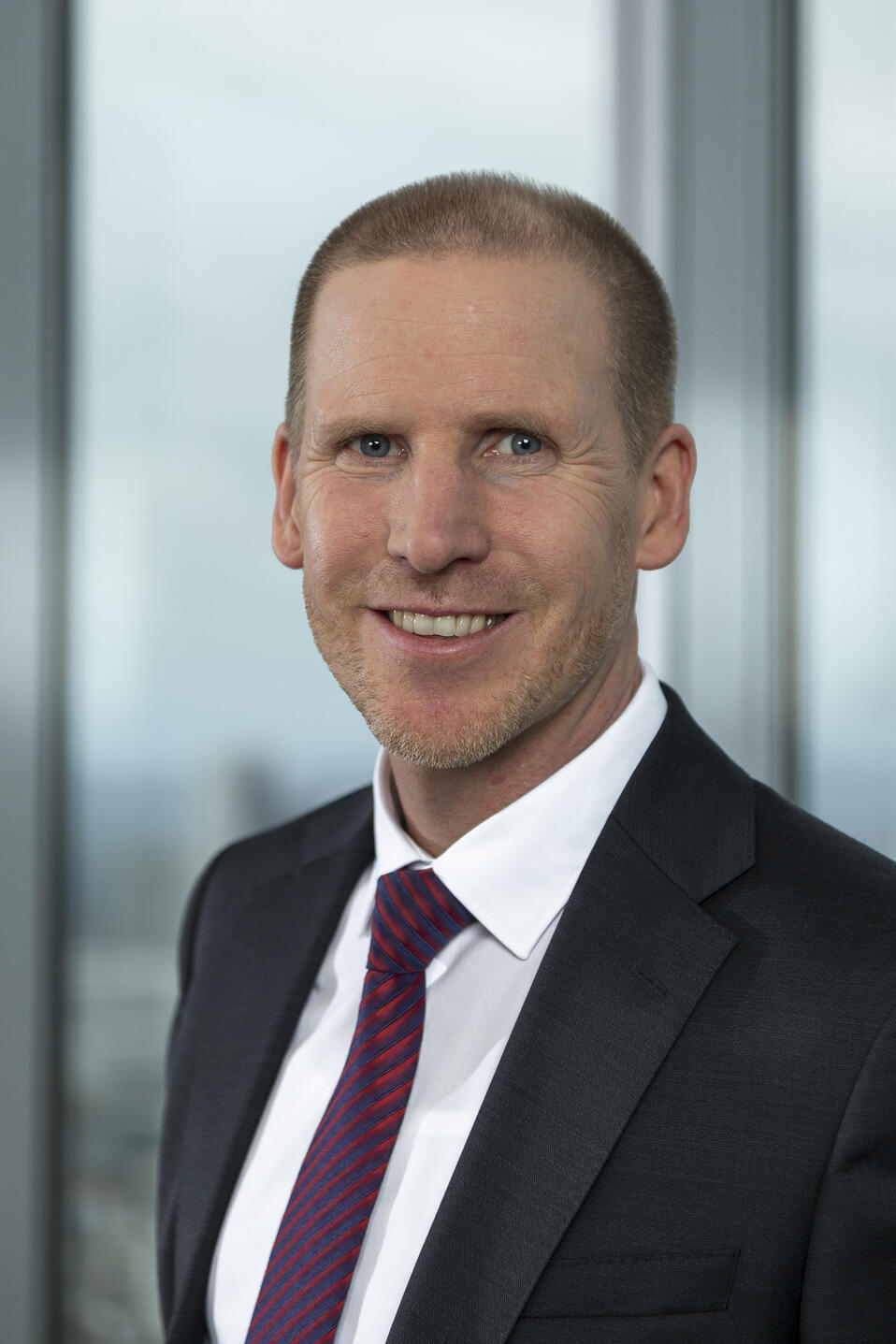
Head of the Public Sector division since 2022
Current projects in the area of sustainability
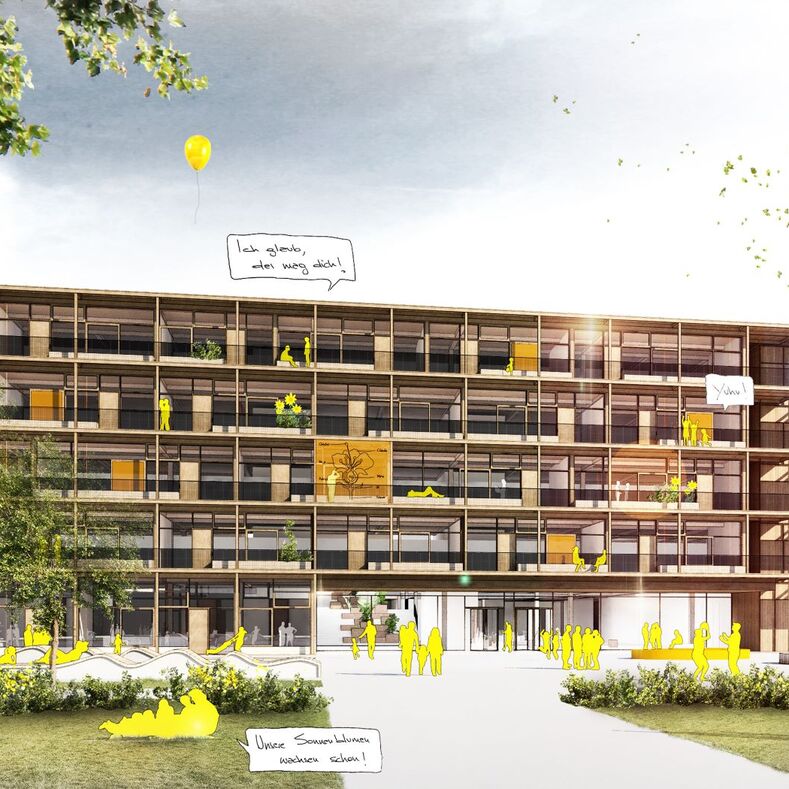 Financing of schools and educational infrastructure
Financing of schools and educational infrastructureFinancing of schools and educational infrastructure
In Nuremberg, Helaba has joined forces with Sparkasse Nürnberg to finance the new Martin-Behaim-Gymnasium, a college preparatory school that will be attended by about 1,500 students.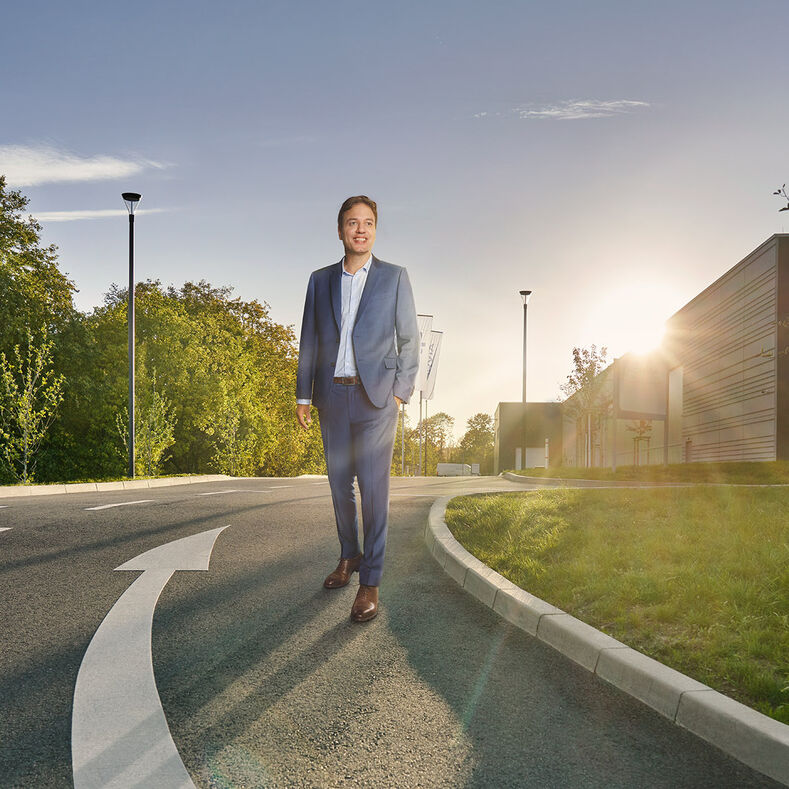 ESG-linked Schuldschein for Faurecia
ESG-linked Schuldschein for FaureciaESG-linked Schuldschein for Faurecia
As part of its ambitious CO2 reduction strategy, Helaba is supporting the automotive and technology company Faurecia with a tailored ESG-linked Schuldschein, which represents a real innovation in the market.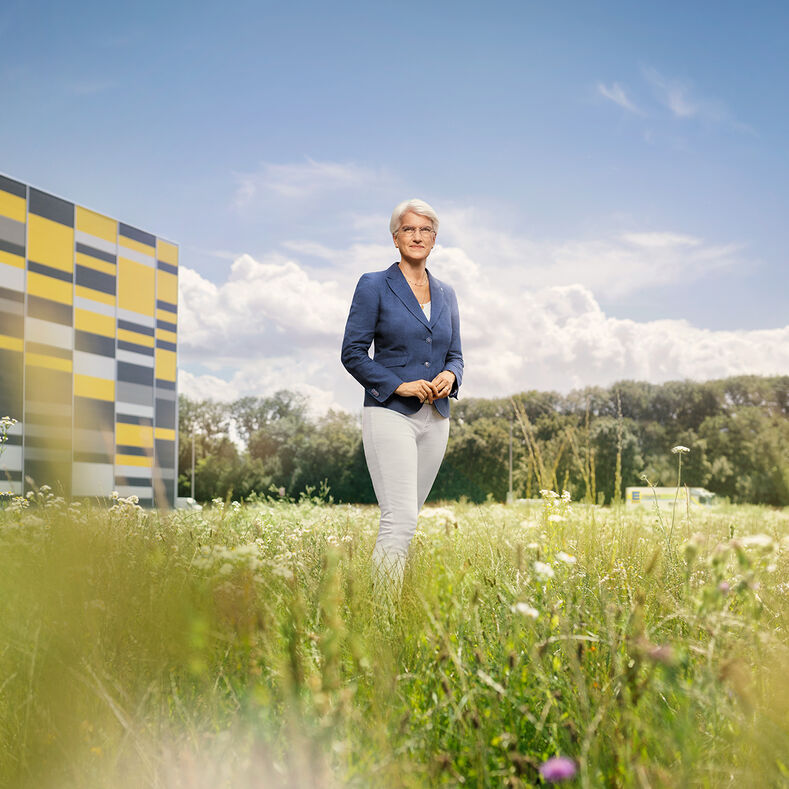 Edeka Südwest
Edeka SüdwestEdeka Südwest
For the German supermarket chain EDEKA Südwest, sustainability is a key tenet of its corporate strategy and is actively embraced in a multitude of ways. Helaba supports this with a sustainability linked loan and a high level of expertise. Catching the wind
Catching the windCatching the wind
One of the cornerstones of the transformation of the energy system, wind power requires complex financing solutions. Stefan Seibel, Vice-President Renewables Team and qualified industrial engineer, knows the ropes.

